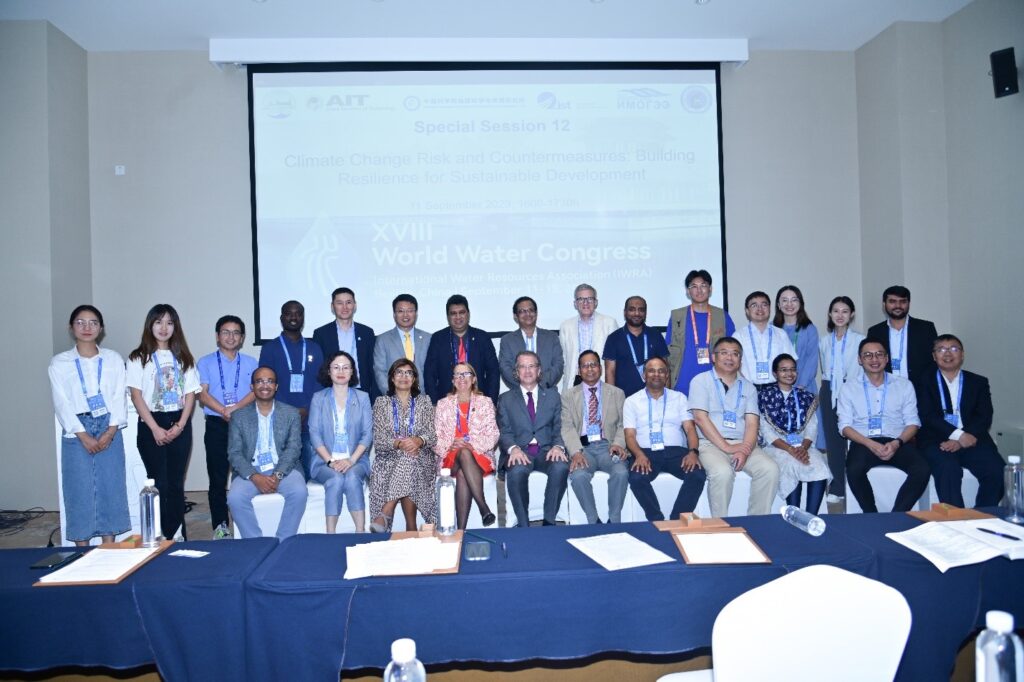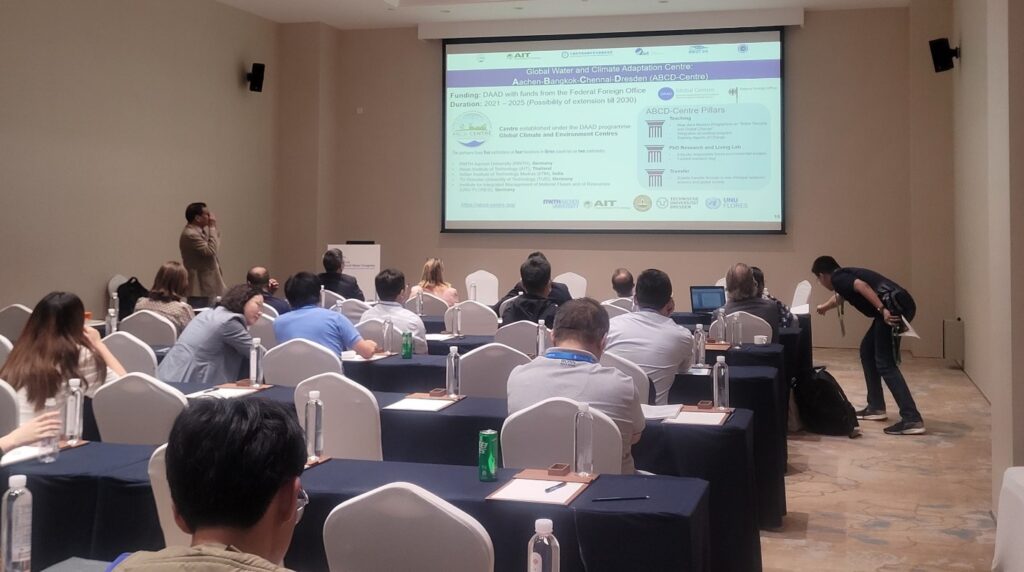Special session on climate risk and resilience
XVIII World Water Congress
The Centre for Water and Climate Adaptation (CWCA) of the Asian Institute of Technology conducted a special session on climate risk and resilience at the XVIII World Water Congress
The Centre for Water and Climate Adaptation (CWCA) of the Asian Institute of Technology (AIT), Thailand, has successfully organized a Special Session titled "Climate Change Risk and Countermeasures: Building Resilience for Sustainable Development" in the XVIII World Water Congress on 11 September 2023. The International Water Resources Association (IWRA) organized the congress from 11-15 September 2023 in Beijing, China. The special session was conducted in collaboration with esteemed partners, including the Chinese Academy of Sciences (CAS), the National Academy of Sciences of Tajikistan (NAST), the National Academy of Sciences of the Kyrgyz Republic (NASKR), and the Institute of Space Technology (IST), Pakistan. It convened diverse experts, researchers, and policymakers to address the pressing issue of adapting to climate change in water resources management.
The session was attended by 25+ participants and was expertly moderated by Prof. Mukand S. Babel from AIT. Prof. Babel took the opportunity to introduce the Global Water and Climate Adaptation Centre – Aachen, Bangkok, Chennai, Dresden (ABCD-Centre), which has the financial support of DAAD, Germany. He highlighted the activities conducted by the Centre in the last three years and possibilities of research collaboration and other opportunities with the Centre. The special session featured a lineup of distinguished speakers and panelists who shared their research findings and insights regarding the impacts of climate change on water resources and adaptation measures. Dr. Dibesh Khadka from AIT delved into the topic of enhancing resilience in Thailand's Mun River basin, shedding light on the multifaceted impacts of climate change on the agriculture sector. Furthermore, Dr. Mujtaba Hassan from IST, Pakistan, presented uncertainties surrounding climate change studies through a case study of Pakistan's Hamza Basin. Dr. Karin M. Krchnak, Director of the IWRA Executive Board and the American Chemistry Council (ACC), discussed Climate change adaptation for building resilience in the water sector. She emphasized the urgent need for collaboration and community engagement in water action.Dr. Anna Görner, representing the CIPSEM team, extended her welcoming remarks, highlighting the significance of the partnership between ABCD Centre and CIPSEM in creating a space for students and alumni to shape a better future. Additionally, she shared information regarding the International Postgraduate Training Program in environmental management for developing countries.

The Special Session also hosted a dynamic panel discussion on "Adapting to a Changing Climate: Strategies and Innovation in Water Resources Management." Prof. Qiuhong Tang from the Chinese Academy of Sciences highlighted challenges stemming from growing water demand and erratic water availability, exacerbated by climate change. Prof. Phillipe Gourbesville of the China Institute of Water Resources and Hydropower Research advocated innovative business models to enhance water service quality while optimizing costs. Mr. Ganesh Pangare, who serves as the Director of the IWRA Executive Board and as a Transboundary Water Engagement Advisor at the World Bank, emphasized the necessity of technical and financial collaboration, encouraged regional thinking, and underscored the importance of transcending geopolitical boundaries to catalyze climate change adaptation. Dr. Karin reiterated the significance of translating research findings into actionable policies that attract investment for sustainable water management. Additionally, she emphasized the shift from a linear approach to a circular one in industries, promoting the manufacture of recyclable products. Overall, the special session highlighted the urgent global need for cooperation, innovation, and policy advocacy to build resilient water systems in the face of mounting challenges posed by climate change.

